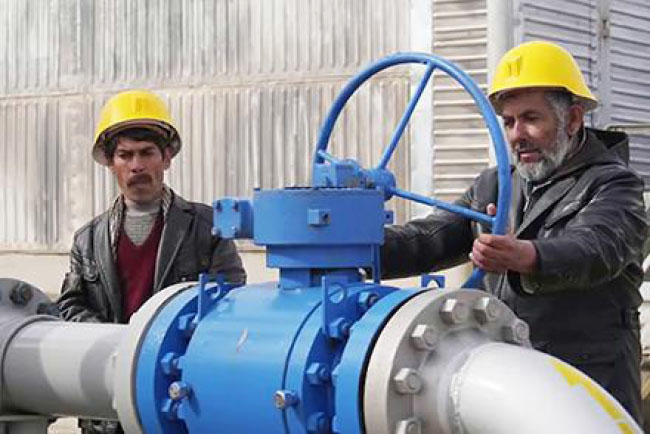KABUL - A World Bank study has found migrants working abroad are helping to drive the economy as they regularly send money home.
A newly released report by the World Bank says that about 16 percent of Afghan families have at least one relative working abroad who sends money home.
The report says that these refugees send money to their families in Afghanistan which has helped in the economic development of the country.
According to the report the Afghan government needs to develop a comprehensive policy in line with this so as to ensure migrant workers are legal workers.
According to the World Bank report, although Afghanistan’s economy has grown due to international aid, employment opportunities are limited in the country.
The report says that each year 400,000 new workers enter Afghanistan’s job market, but only 200,000 of them will find work and the rest will have two options: to go abroad for work, or start a business.
The report stated that many Afghans who go abroad in search of work are illegal and work for little money.
Despite this however, the money Afghans send home makes up 10 per cent of the country’s annual gross domestic income.
“The refugees and repatriation ministry’s assessments show that $7 billion USD was injected into Afghanistan’s economy by refugees in one year. We have plans for legal migrations and have considered legal migrations in the ministry’s policies and strategies,” said Hafiz Ahmad Meyakhil, media advisor to refugees and repatriation ministry.
The report suggested that if the Afghan government develops a policy in terms of migrations and helps the people find work legally outside the country, they will find better jobs and will play a greater role in growing Afghanistan’s economy.
According to the report, currently Turkey and Gulf countries are the best options for Afghans in terms of finding legal and better paying jobs.
“This outline (legal migrations) can help us a lot to enter into dialogues with new plans. In the past we had discussions with the Gulf countries, United Arab Emirates, Qatar and Saudi Arabia. The (dialogue) doors were open for us and now also we can continue our negotiations. But the problem is that this is a long-term process and we cannot expect immediate outcomes,” Abdul Fatah Eshrat Ahmadzai, spokesman for refugees and repatriation ministry said.
The World Bank in its report has anticipated that by 2050, Afghanistan’s population will stand at 56 million and that as the population increases, migration for economic purposes will also increase.
“There are millionaires and billionaires in Gulf states and other countries who have big businesses. They can create employment opportunities for thousands of people by launching big projects but due to corruption and insecurity, they cannot come here (Afghanistan) to open businesses,” Chairman of the National Union of Afghanistan's Workers and Employees, Maroof Qaderi said.
The World Bank report highlights that currently the number of Afghan refugees outside the country is 4,8 million.
According to the report, from 1990 onward, 95 percent of migrations were mainly fueled by the political and war crisis, but since 2015, economic problems have also driven migration. (Tolonews)

